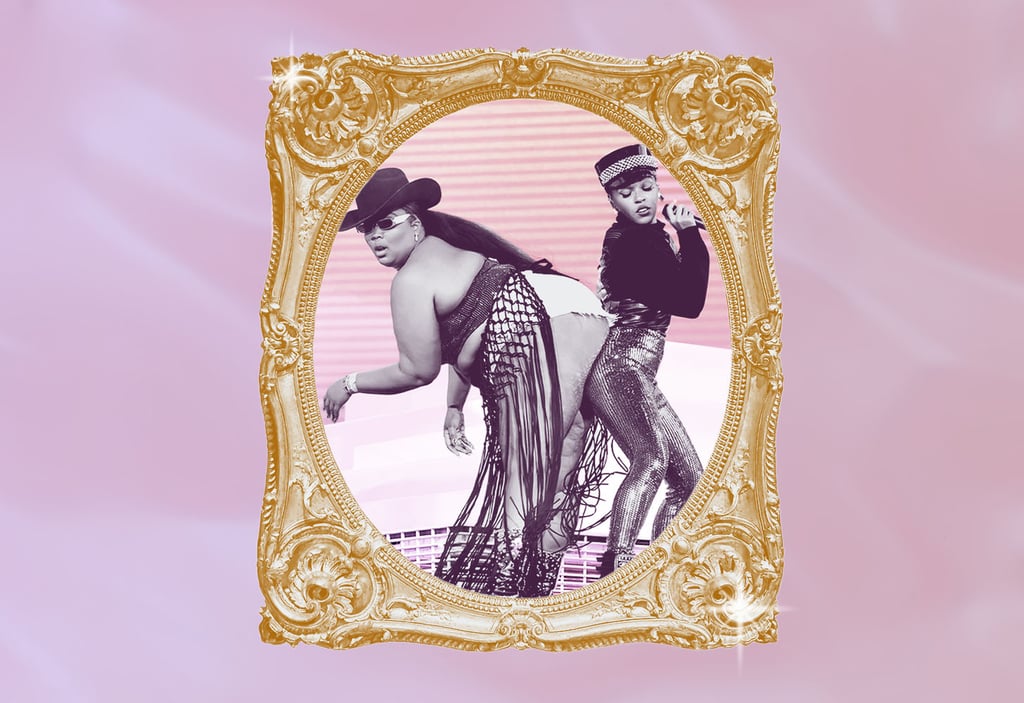
Image Source: Image source: Getty / Graphic House Kevin Winter Ilya S. Savenok Stringer Tomekbudujedomek; Photo illustration: Ava Cruz
Since Miley Cyrus‘s infamous 2013 MTV VMAs performance, twerking has become a mainstream phenomenon. That same year, the term was added to the Oxford English Dictionary. A decade later, you can now find twerk fitness workouts on some of the most popular platforms, and twerking YouTube tutorials have reached tens of millions of views. Yet, just as with most things within Black culture, the validity and popularity of twerking were only established once a pop star performed it on MTV. In reality, the culture and history of twerking is centuries old, and dates back to the Ivory Coast of Africa, before the transatlantic slave trade. As we celebrate 50 years of hip-hop and the evolution twerking has made into the mainstream, it’s important to take a moment and reflect the journey it’s taken to get to this place. Both hip-hop and twerking have been subject to censorship, backlash, and continuously scrutinized by mainstream media. Rap groups like NWA were banned from performing in certain arenas. Artists like Megan Thee Stallion and Cardi B have been criticized for being overly sexual and not respecting themselves. However, if hip-hop culture has taught us anything, it’s how to genuinely show up in the world as our most authentic selves. It’s shown us what it looks like to stay connected to our ancestral roots and how to use the pain of our oppression to create a form of expression the world needs. Most importantly, hip-hop has taught us what resilience and consistency can manifest in our lives even when we’re up against the greatest of odds. Ahead, read through a cultural storyline of twerking, from its African roots through ’90s New Orleans, early viral videos, and Lizzo‘s TED Talk up to the present day.
Pre-Transatlantic Slave Trade: Twerking’s Historical Origins
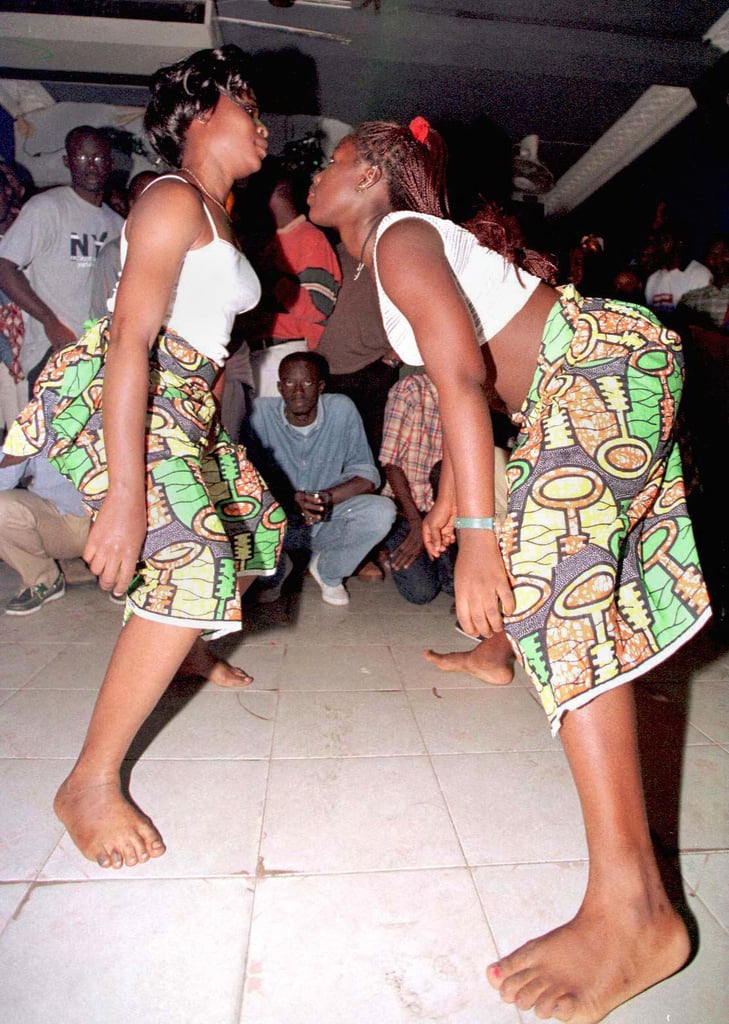
Image Source: Getty / ISSOUF SANOGO / Contributor
1 / 10
1900s: Black American Culture
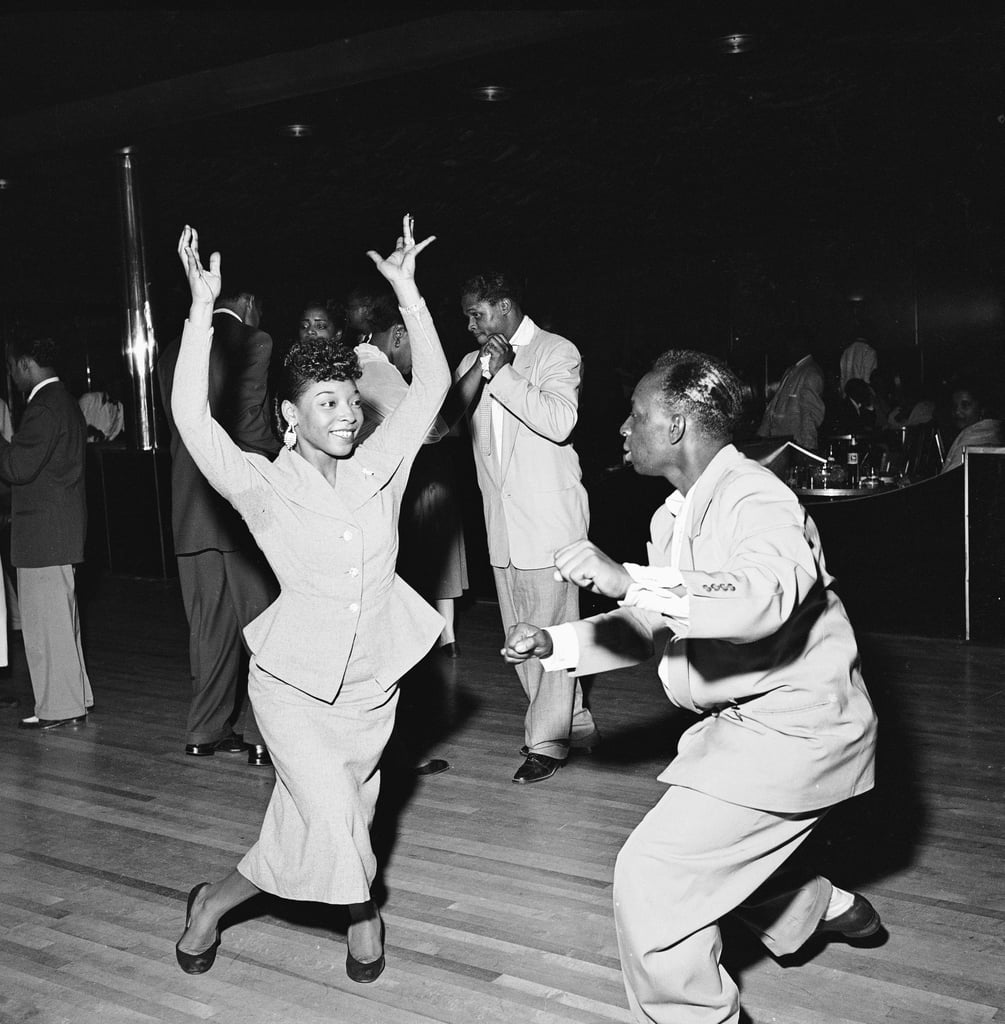
Image Source: Getty / Graphic House / Staff
2 / 10
1993: Twerking and New Orleans Bounce Music
3 / 10
2000: Ying Yang Twins’s debut single
4 / 10
2003: Twerking Defined in the Urban Dictionary
5 / 10
2009: The Twerk Team goes viral
6 / 10
2013: Miley Cyrus’s Viral VMA performance
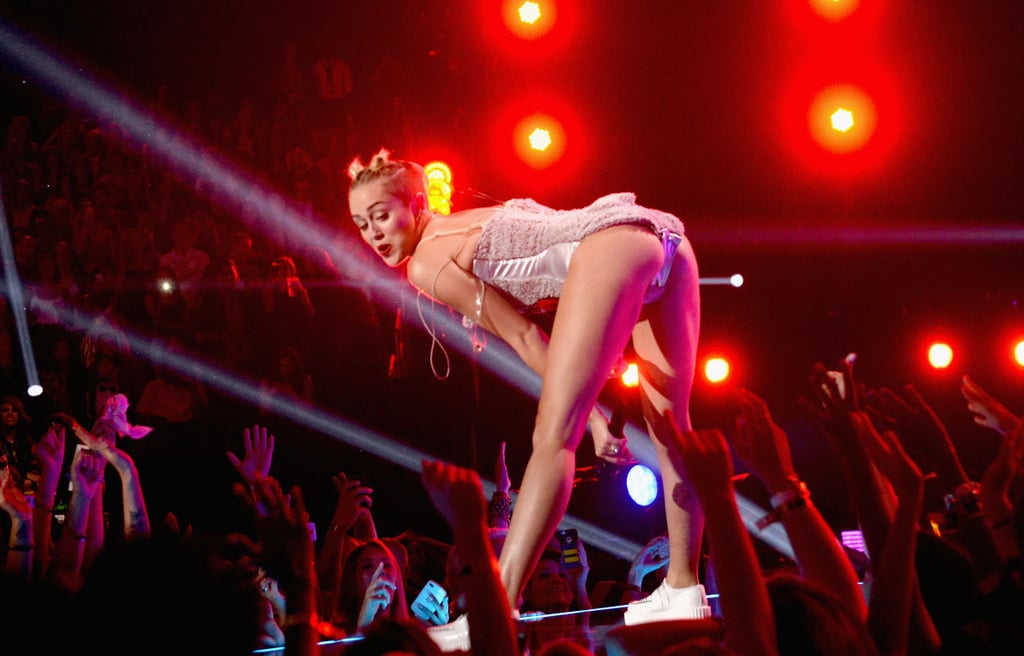
Image Source: Getty / Jeff Kravitz / Contributor
7 / 10
2013: Oxford English Dictionary Adds Twerking, and a Guinness World Record Is Broken
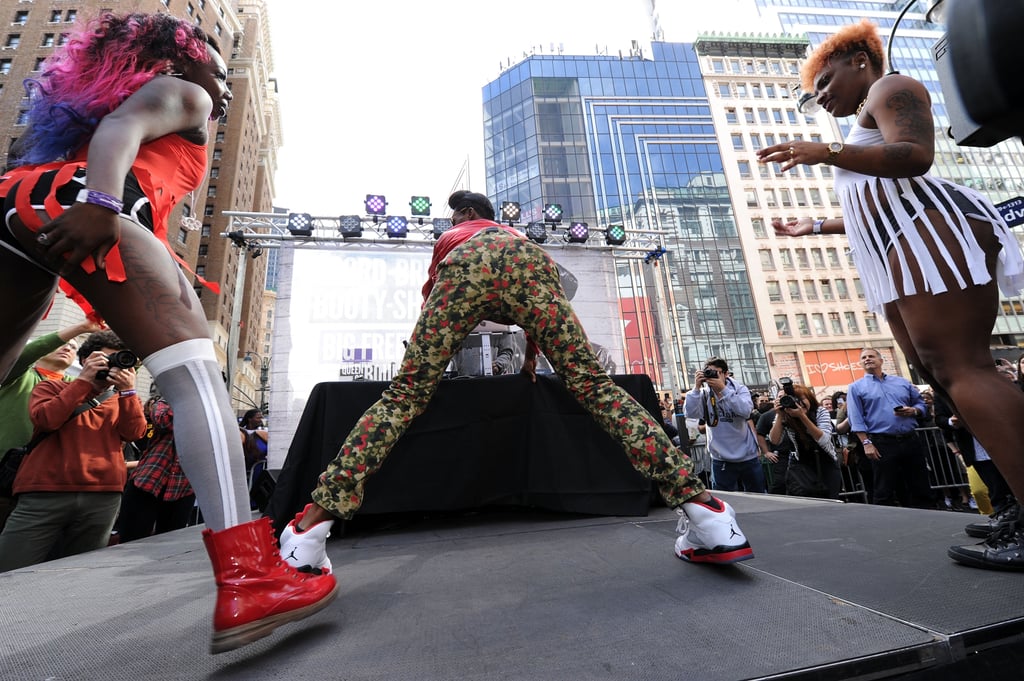
Image Source: Getty / Ilya S. Savenok / Stringer
8 / 10
2021: Lizzo’s TED Talk
9 / 10
2023: Essence Fest “Twerk Off”
10 / 10
